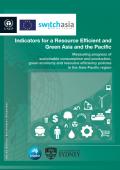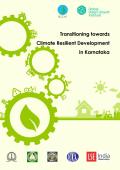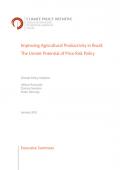
Natural resources are the foundation of economic development. This report reveals the patterns and the evolution of natural resource use with 118 indicators in 26 countries of the Asia and the Pacific region over the last 40 years. The analysis shows that resource use in the region is both inefficient and unsustainable. The Asia-Pacific region will not be able to base its future economic growth on declining costs of natural resources as was possible during most of the twentieth century. An increasing reliance on resources from abroad and volatility in the global resource markets will pose challenges to the economic resilience of countries in the region. In this new economic context resource efficiency and decoupling of economic growth and resource use will be fundamental to the economic success of the region. The knowledge generated by this report helps to improve the understanding of the natural resource use and emissions consequences of economic growth in Asia and the Pacific to support policy formulation, monitoring and policy evaluation in the countries of the region.
Across the world, a growing number of governments, regulators, standard-setters and market actors are starting to incorporate sustainability factors into the rules that govern the financial system. The inquiry was established in January 2014 to understand this fast-moving trend and to produce a set of policy options to advance good practice. The Inquiry has worked with a range of partners including central banks, financial institutions and international organisations to highlight a diversity of catalysts and approaches across banking, capital markets, insurance and investment. The Inquiry’s fourth progress report focuses on financial reforms that can reduce the risks of high carbon assets, scale up capital for the low-carbon transition and invest in protecting economies from natural disasters and climate shocks.


Risk — whether real or perceived — is the single most important factor preventing renewable energy projects from finding financial investors, or raising the returns that these investors demand. It is also one thing that policymakers can cause, control, alleviate, or help mitigate. In a series of three studies, titled Risk Gaps, CPI maps the availability of risk instruments against demand and analyzes several new, potential instruments designed to address the biggest gaps: first-loss protection instruments and policy risk insurance.
